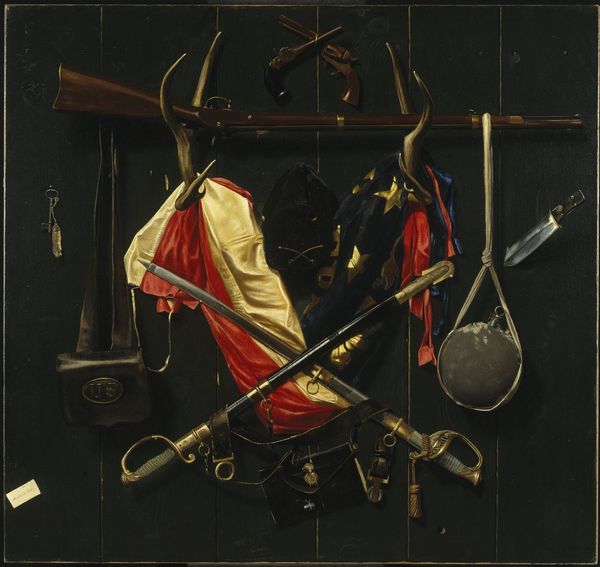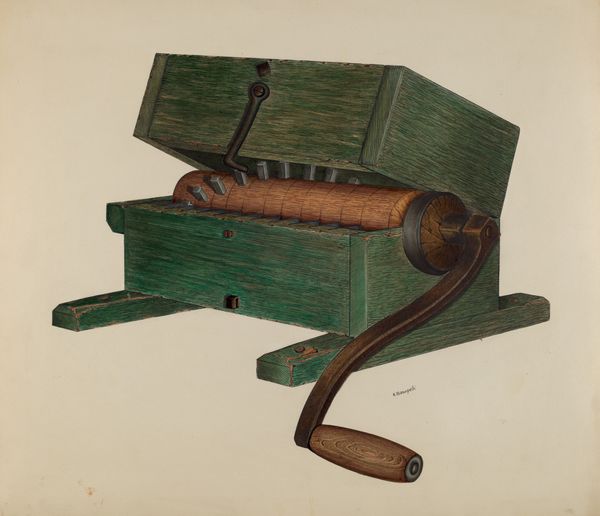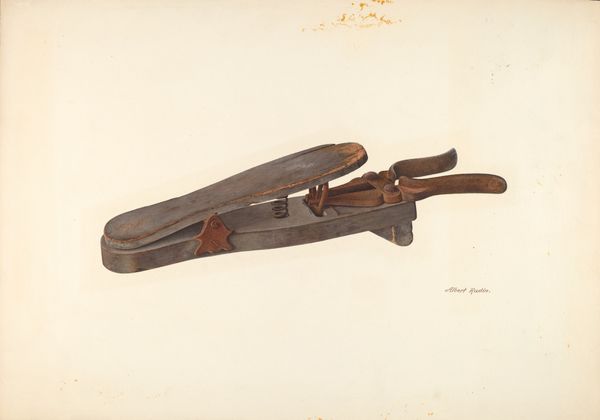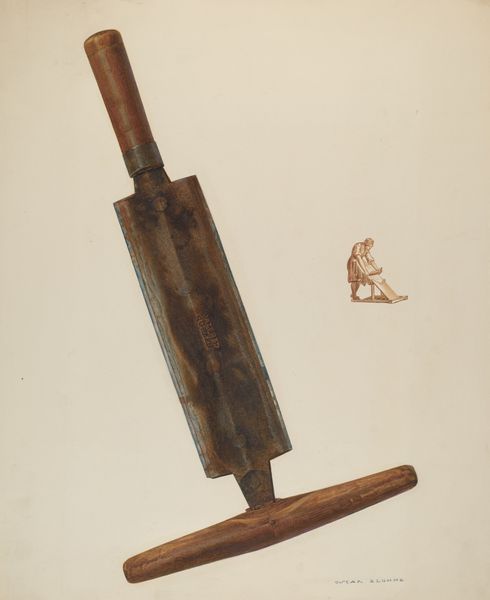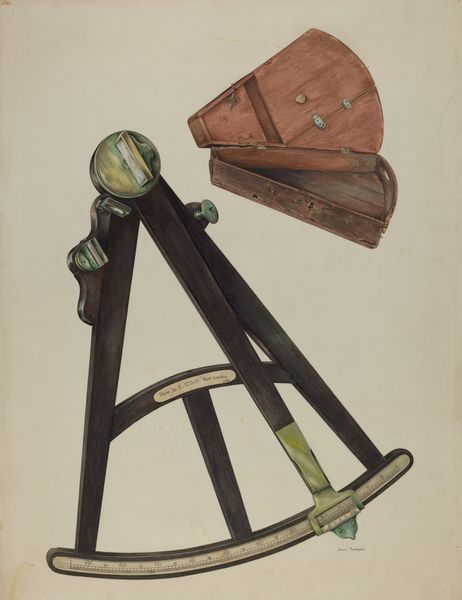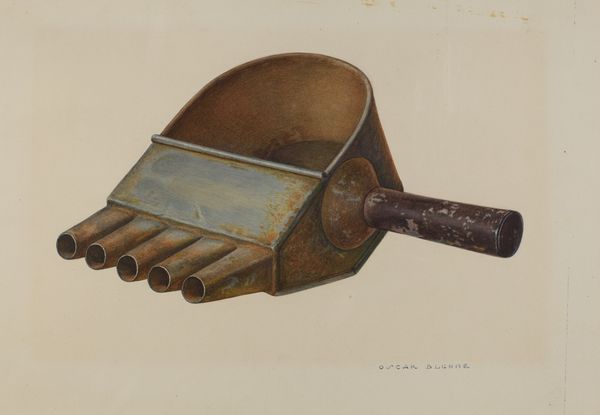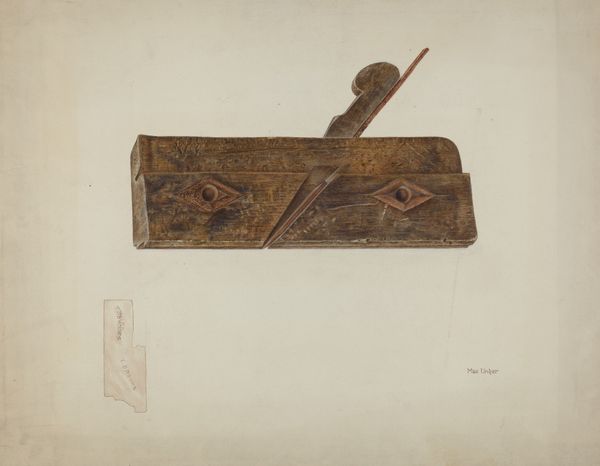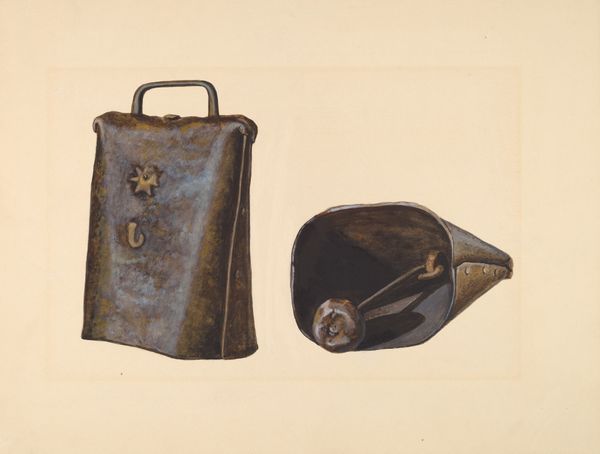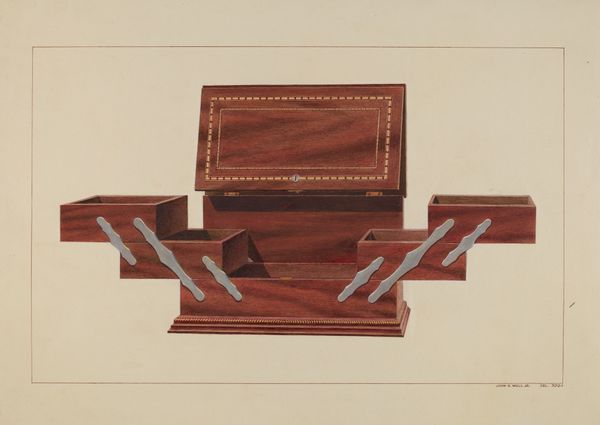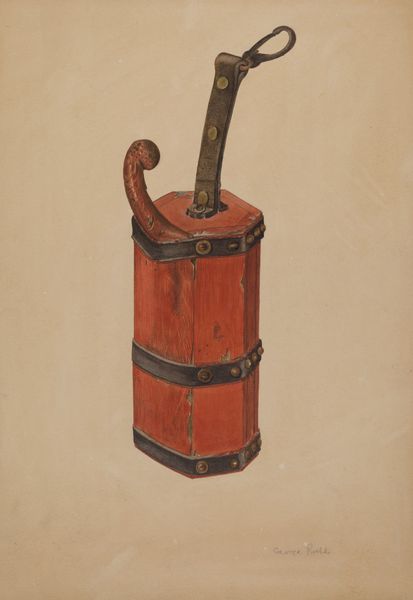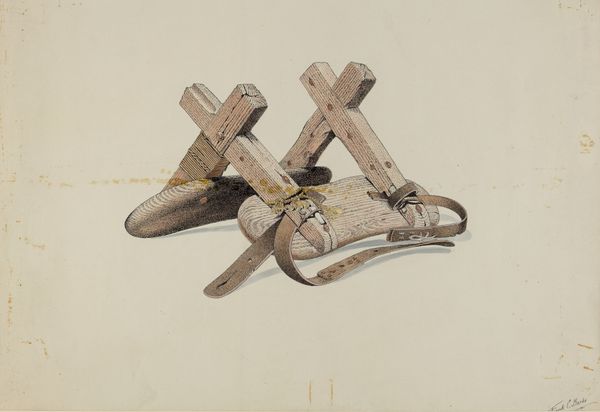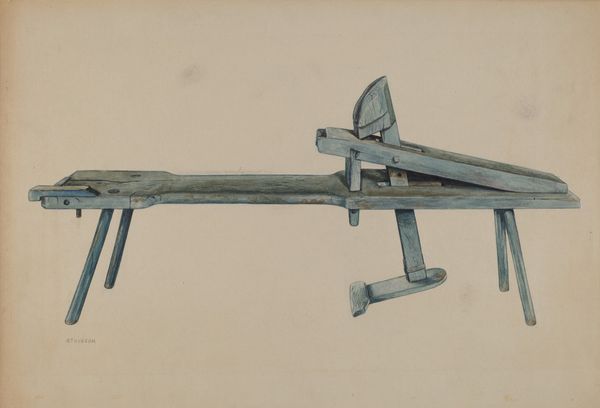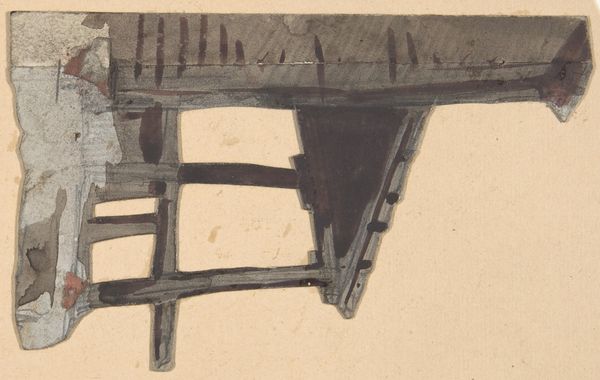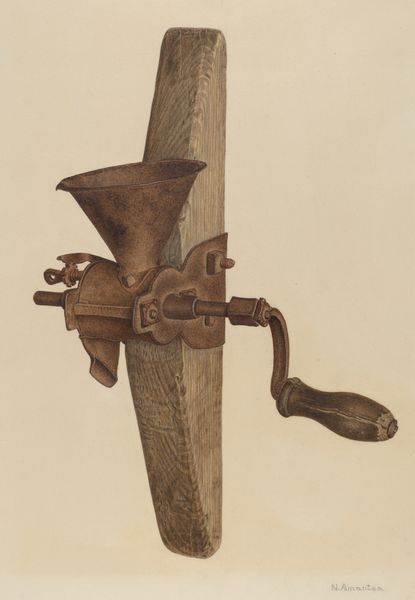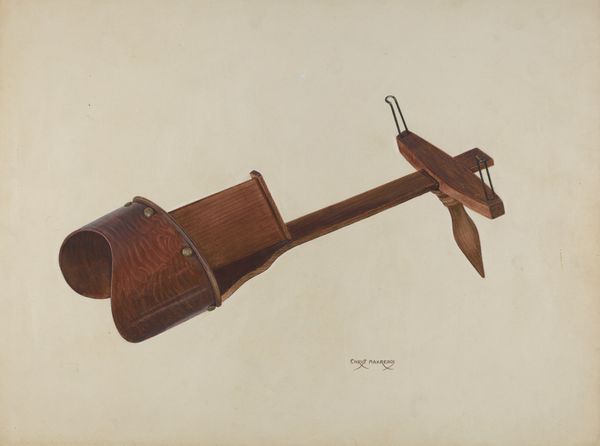
#
acrylic
#
abstract painting
#
sculpture
#
possibly oil pastel
#
oil painting
#
acrylic on canvas
#
underpainting
#
painting painterly
#
watercolor
#
expressionist
Copyright: Public Domain: Artvee
Curator: Albert Edelfelt created this piece, titled "Still Life," in 1873. It seems to present a collection of various instruments or tools laid upon a red surface. Editor: Stark. It feels both elegant and brutal, juxtaposing refined materials like bone and polished metal against what appears to be weaponry. A bit unsettling, honestly. Curator: I am particularly interested in the materiality. The varied surfaces, from the reflective brass horn to the textured wood of the gunstock and the glint of the dagger’s blade, each crafted by different artisans. This reflects a moment where industrialized production was still intertwined with individualized craftsmanship. Editor: For me, it's the juxtaposition of the horn with the weapons. Brass instruments historically signified not just music but also military signals. Does that elevate these instruments of war, or bring a warlike undertone to the beautiful sounds a horn produces? Curator: Interesting observation. The positioning, however, brings to mind specific trades or roles associated with the objects displayed, such as a hunter or soldier. The presence of tobacco hints at leisure between acts of work or combat. It reflects tangible aspects of daily life and speaks to social status. Editor: Beyond that, the knife dominates the arrangement. Is it a hunting tool? A weapon of aggression? Edelfelt is making us question the purpose behind beautiful, handmade objects. Perhaps exploring the duality of beauty and destruction. Curator: A point well-taken. Looking closely, you begin to appreciate the careful layering of the oil paint itself. Observe how the light catches each individual piece. Editor: Yes, the composition itself creates this visual tension. Objects are partially obscured, overlapping each other. We are left questioning the meaning and significance of each object within this seemingly random gathering. Curator: Indeed, this examination reminds us how profoundly an understanding of making and consumption enhances our appreciation of art. Editor: And seeing these particular objects represented together invites us to reflect on how visual symbolism embeds multiple cultural meanings. Thank you for bringing your attention to detail to this rich example.
Comments
No comments
Be the first to comment and join the conversation on the ultimate creative platform.
